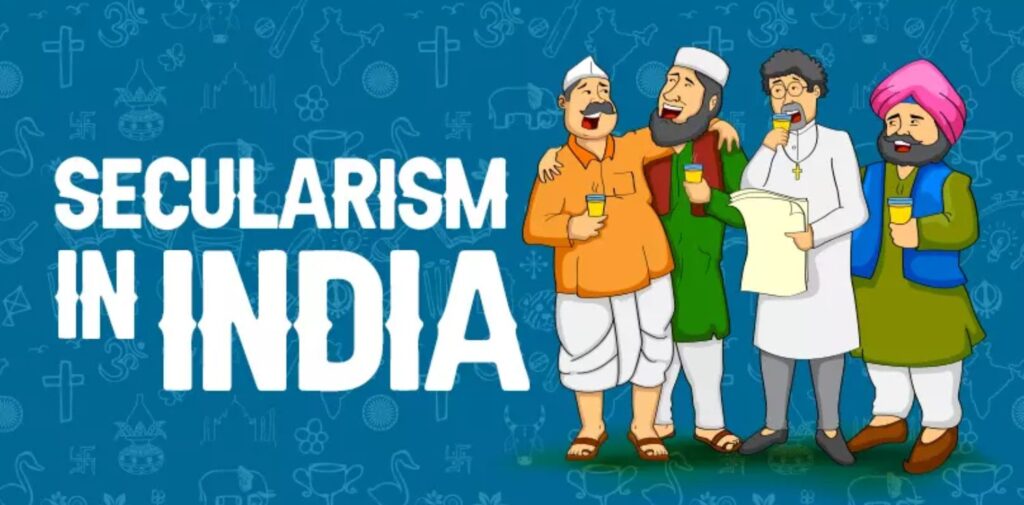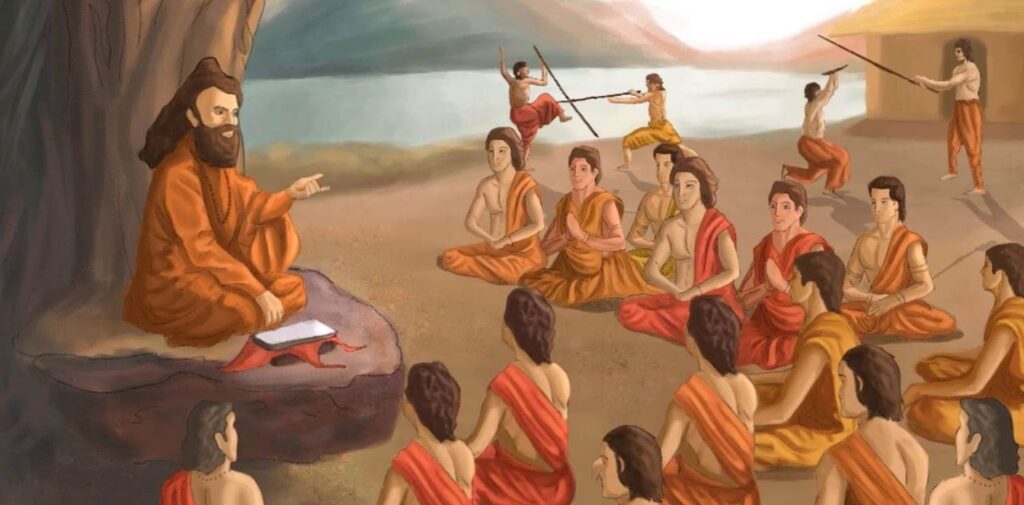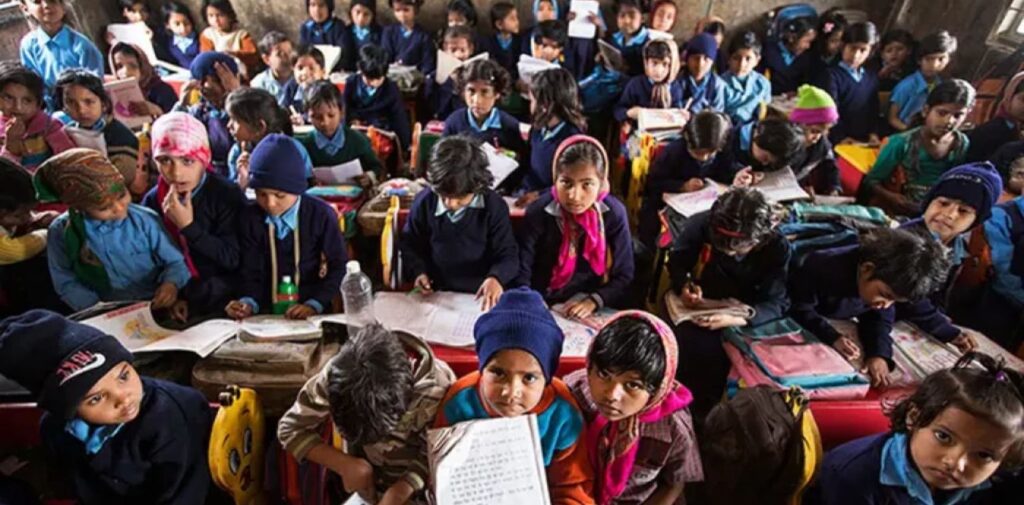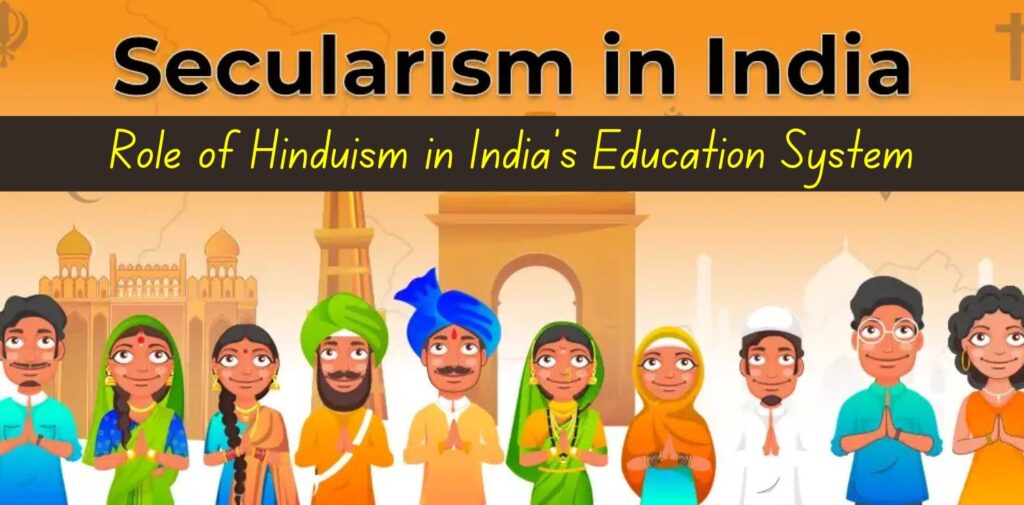India is a diverse country with many religions, languages, cultures, and traditions. One of the most important aspects of this diversity is its education system, which is shaped by historical, social, and cultural factors. Hinduism, being the largest religion in India, has had a significant influence on the country’s education system. However, the role of Hinduism in education is a topic of much debate. Some argue that India’s education system is secular, while others believe that Hinduism plays a strong role in it. This article will explore both sides of the debate—whether Hinduism is a religious influence on the education system or whether India’s education system is truly secular.
Understanding Secularism in India
Before we explore the role of Hinduism, it is important to understand what secularism means in the Indian context. Secularism in India refers to the principle that the state should not favour any one religion over another. It means that the government should treat all religions equally, without giving preference to one. This idea is enshrined in the Indian Constitution, which guarantees freedom of religion to all citizens. The Preamble of the Constitution declares India to be a “secular” state, emphasizing that religion should not interfere with politics, governance, or public life.

Hinduism’s Influence on Indian Education
India’s education system has been shaped by many different influences, both religious and non-religious. Since Hinduism is the dominant religion in India, it is natural to find traces of it in the country’s educational institutions, especially in the past. Historically, education in India was closely linked with religion. Ancient Hindu texts like the Vedas, Upanishads, and Bhagavad Gita played a significant role in shaping the intellectual traditions of India. Gurukuls (traditional schools) were places where students learned about Hindu philosophy, scriptures, and culture.
In more recent times, Hinduism continues to influence certain aspects of India’s education system. For example, Hindu values and traditions often find their way into school curricula. Religious festivals like Diwali and Holi are celebrated in many schools, and Hindu scriptures may be taught in some private or religious schools. Some schools may also focus on moral education, which is based on Hindu teachings of good behaviour, respect for others, and the importance of spiritual development.
The Case for Hinduism’s Influence on Education
Supporters of the view that Hinduism plays a role in India’s education system point to several examples where religious elements are present. These include:
- Religious Studies and Moral Education: Many schools, particularly those in rural areas, offer religious education based on Hindu teachings. Even in secular schools, moral education often includes values derived from Hindu traditions. For instance, lessons about honesty, compassion, and respect for others are closely linked to Hindu philosophies like Ahimsa (non-violence) and Satya (truth). In some cases, students might learn about Hindu gods, festivals, and rituals as part of their broader education.
- Festivals and Traditions in Schools: In India, Hindu festivals such as Diwali, Dussehra, and Navratri are often celebrated in schools. These celebrations are an important part of school culture and help students connect with their heritage. While these festivals are primarily religious, they also serve as cultural events that promote unity and social harmony. However, critics argue that such celebrations may give an unfair advantage to Hindu students and leave non-Hindu students feeling excluded.
- Role of Hindu Temples in Education: In some parts of India, Hindu temples run schools or educational programs. These schools often integrate religious teachings with general education. For example, students in these institutions might learn about Hindu rituals, mythology, and philosophy alongside subjects like mathematics, science, and literature. The influence of Hinduism in these settings is more direct, as the teachings are explicitly linked to the religion.

Argument for a Secular Education System
On the other hand, many argue that India’s education system is secular, and Hinduism does not have a dominant role in shaping education for all students. The Constitution of India guarantees religious freedom and emphasizes that the state should not promote any religion. Many educators and policymakers believe that the education system should be neutral and inclusive, offering equal opportunities to students of all religious backgrounds.
Here are some points in favour of the secular nature of India’s education system:
- Diverse Student Population: India is home to people of many different religions, including Islam, Christianity, Sikhism, Buddhism, and others. A truly secular education system must cater to the needs of all students, irrespective of their religious beliefs. In secular schools, students are typically taught subjects like science, history, and mathematics without any religious influence. The focus is on preparing students for a modern, globalized world, where people of all religions and cultures coexist.
- Focus on Universal Values: In secular schools, moral education focuses on universal values such as kindness, respect, honesty, and responsibility, rather than on religious teachings specific to any one faith. These values are important for creating a sense of shared humanity and social cohesion. Students learn to respect each other’s differences and appreciate diversity, which is essential in a multicultural country like India.
- Government Policies and Curriculum: The Indian government has worked to ensure that the education system is secular and inclusive. The National Curriculum Framework (NCF) guides the design of school curricula in a way that promotes secularism and avoids religious bias. The framework emphasizes the importance of science and rational thinking while ensuring that all religious communities are respected. For instance, schools are encouraged to teach about different religions, but without promoting any one religion over the others.
- Separation of Religion and Education: In government-run schools, religious practices like prayer and worship are usually not part of the formal curriculum. While some schools may have religious clubs or events, these are typically voluntary and not compulsory for students. The focus in most schools is on academic subjects that help students develop skills for personal and professional success, rather than on religious instruction.

The Debate: Secular or Religious?
The question of whether Hinduism plays a dominant role in India’s education system is complex. On the one hand, there are clear examples where Hinduism influences education, such as in private religious schools, festival celebrations, and moral education. On the other hand, the Constitution of India and the policies of the government aim to ensure a secular, inclusive education system. Many schools in India provide education that is free from religious bias and focuses on universal values and academic subjects.
In many ways, India’s education system reflects the country’s broader societal diversity. While Hinduism may have a visible presence in some areas, the education system also strives to be inclusive and secular. The challenge, however, lies in balancing these two aspects—honouring India’s cultural and religious heritage while ensuring that all students, regardless of their faith, feel respected and included.
Conclusion: Role of Hinduism in India’s education system
In conclusion, the role of Hinduism in India’s education system is not a simple matter of being either secular or religious. There are elements of both. While Hinduism does influence certain aspects of the education system, especially in private schools and moral education, India’s education system, as a whole, strives to be secular and inclusive. The challenge for policymakers and educators is to find a balance that respects the country’s rich religious traditions while ensuring that education remains accessible, fair, and relevant for all students, regardless of their religious background.
The ongoing debate reflects the dynamic nature of India itself—a nation that continues to evolve in its approach to religion, culture, and education. The future of India’s education system will likely continue to balance these diverse influences, striving to provide an environment that respects all religions while fostering a spirit of unity and progress.



